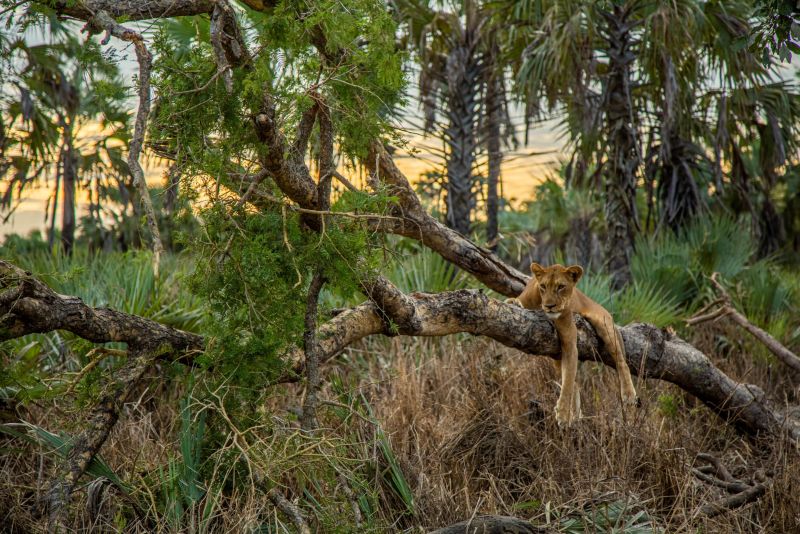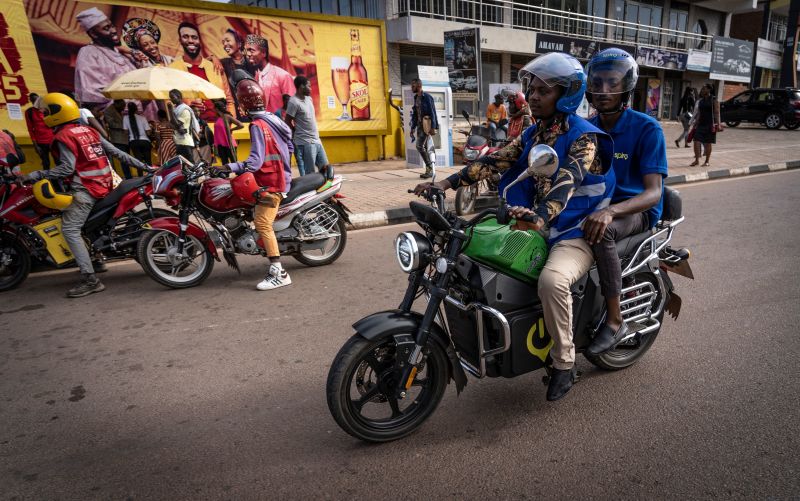
Reviving a National Park: The Extraordinary Role of Coffee

Gorongosa Coffee Project: Empowering farmers, restoring Gorongosa National Park in Mozambique through reforestation and sustainable coffee cultivation
Africa is often regarded as the birthplace of coffee, with Ethiopia and Kenya recognized for producing some of the world's finest beans. However, Mozambique is now emerging as a formidable contender in the industry. In a significant move, the country recently became a member of the International Coffee Organization, committing to environmentally sustainable and ethical coffee production.
Mozambique's drive to establish itself as a prominent coffee producer owes much to the Gorongosa Coffee Project. Established in 2013, its primary aim was to restore the forest cover of the national park it resides in – an expansive region spanning 1,500 square miles (4,000 square kilometers) at the heart of the nation. This area is not only home to approximately 200,000 individuals but also boasts the presence of iconic African elephants and lions. Today, the project's coffee cultivation acts as an additional source of income for these local communities.
A lion lounges on a tree in Gorongosa National Park.
Gorongosa Media
According to Juliasse Sabao, the supervisor of the Gorongosa Coffee Project, the introduction of coffee to the national park has significantly improved the livelihoods of the local residents. Previously, they were primarily subsistence farmers who only grew enough maize, beans, and peas to sustain their families, with little left over to sell. However, through the project, the park residents were motivated to cultivate coffee and received training on its cultivation and harvest. Additionally, they were provided with native tree seedlings to plant alongside the coffee plants, which offered beneficial shade and wind protection while contributing to reforesting efforts in the park.
As a result, the coffee has now become a reliable source of income for these workers. Sabao states that they can now afford to pay for their children's school fees, buy new uniforms, and provide their families with basic necessities. This positive transformation in their lives is happening rapidly.
The project initially had only 10 families, but over the course of 10 years, it has expanded to include approximately 1,000 families who work as farmers, roasters, pickers, and tasters. Sabao mentions that communities were initially hesitant to participate due to coffee being a new crop in the country with limited knowledge. However, after the first successful crop was sold and the farmers saw a profit, the word spread, leading to the involvement of many more people in the initiative.
Reforestation, coffee and communities
Sofia Molina, the head of the Coffee Project, highlights a gradual rise in coffee outputs, both in terms of volume and quality, over time. Despite being a for-profit endeavor, Molina firmly believes that prioritizing profit alone is not a sustainable approach for the future. She emphasizes the importance of embracing other factors like reforestation and community involvement.
Sabao shares this belief. "In 2018, an attempt was made to cultivate indigenous plants in this area, but unfortunately, it did not yield the desired results due to a lack of community understanding regarding its significance. The pressing question that arose was, 'What benefit does it bring?'" he explains.
Two coffee farmers with their new seedlings.
Gorongosa Media
Therefore, a coffee initiative was implemented as a means to promote reforestation. This initiative brings happiness to the locals, as they understand that cultivating coffee not only provides them with income but also contributes to the restoration of the forest.
Growing education
According to Molina, coffee is a prestigious agricultural product. She claims that several communities have experienced a threefold increase in their yearly income after participating in the project. Molina proudly states that by carefully combining conservation efforts with coffee production, Mozambique has now become the largest coffee producer. This achievement is considered a matter of national pride.
African startup Spiro is one the leading providers of electric two-wheelers on the continent, with around 10,000 vehicles currently on the road.
CLEMENT DI ROMA/AFP via Getty Images
A battery swap scheme is turning Africas roads electric
Some of the proceeds from coffee sales are used to construct new schools and train teachers within the park. These schools place significant emphasis on establishing a secure environment for local girls, motivating them to complete their education and preventing child marriages. Moreover, they offer after-school programs that not only educate girls on the importance of preserving their ecosystem but also grant them leisure time for play, addressing the previous lack of such opportunities as girls would previously immediately return home from school to fulfill household duties.
According to Vasco Galante, the director of communications for national parks, the restoration of Gorongosa National Park is regarded as one of Africa's most remarkable successes in wildlife revitalization. Galante affirms that coffee production has played a crucial role in accomplishing this feat, as sales of the product have enabled buyers to actively contribute to a self-sustaining system that aids in the park's restoration and protection, generates employment opportunities, and provides healthcare, training, and education for the local population.
Indigenous trees grown alongside the coffee plants help to provide shade and reforest the park.
Gorongosa Media
Cross-border impact
Gorongosa coffee is predominantly exported to South Africa, which serves as its largest market within Africa. In addition, the company has aspirations to expand its presence into neighboring Zimbabwe, as well as Tanzania, Malawi, and Kenya.
courtesy Roam
Electric buses are driving a silent revolution in Nairobi
The Coffee Project is promoting idea exchange by inviting farmers from different countries to visit the park model and sending its own representatives overseas. Wana Chipoya, a Zambian agronomist specializing in coffee, visited the national park recently and was highly impressed. "I have brought back numerous techniques from my visit," he states.
Molina's message to consumers is to consider the origin of their coffee before consuming it. He urges them to question why a low price is being offered and encourages them to contemplate the families working in the fields who rely on the income from the coffee.











